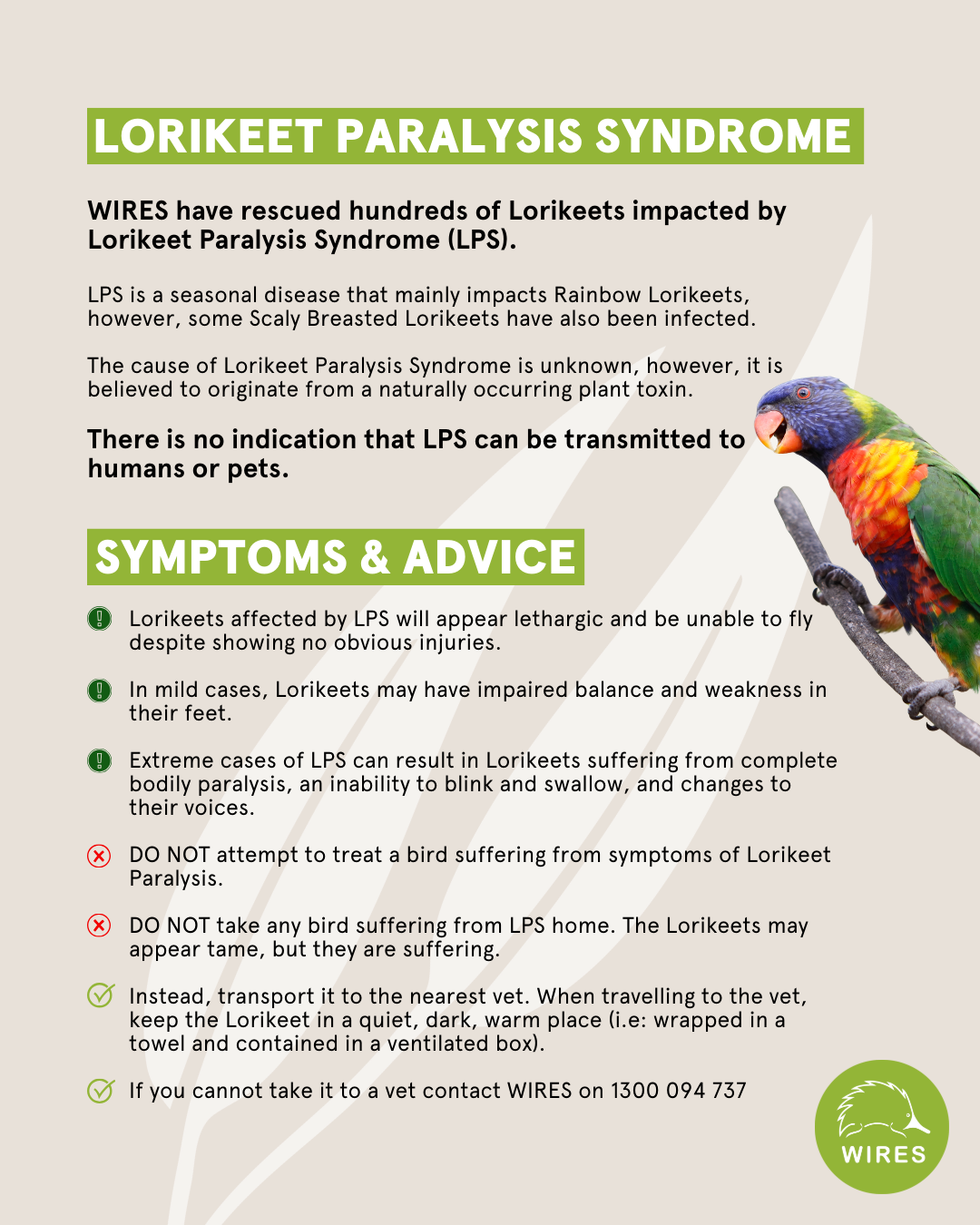Lorikeet Paralysis
Syndrome
- Home
- What We Do
- Wildlife Information
- Disease Information
- Lorikeet Paralysis Syndrome
Lorikeet Paralysis Syndrome (LPS)
An Overview
What is LPS?
Lorikeet Paralysis Syndrome (LPS) predominantly affects wild rainbow lorikeets, leading to paralysis and the inability to fly.
Cause and Investigation
While the exact cause of LPS remains unidentified, research continues to explore potential links, including the ingestion of a toxic plant. The disease typically occurs seasonally from October to June, with the peak period of cases observed between December and February.
What to Do if You Encounter a Lorikeet with LPS
If you come across a lorikeet suspected of having LPS, follow the guidelines provided by WIRES. This includes handling the bird cautiously, using a suitable container, and refraining from offering food or water during transport.

15 Ways to Help Wildlife
Sign up to receive our monthly eNewsletter with wildlife rescue stories and updates on our work rescuing, rehabilitating, and releasing native wildlife.
